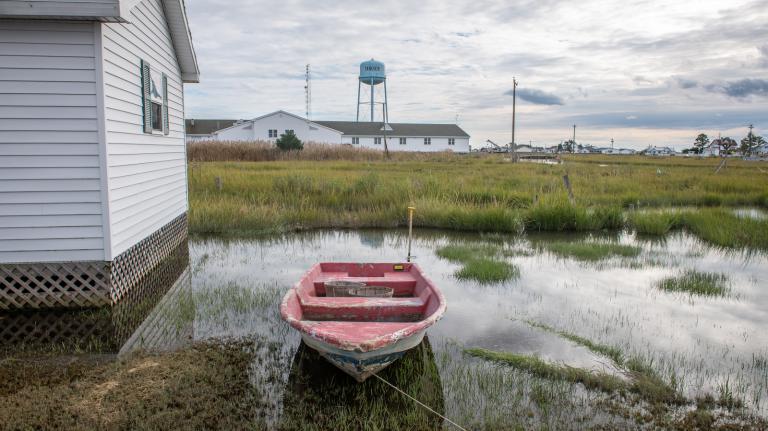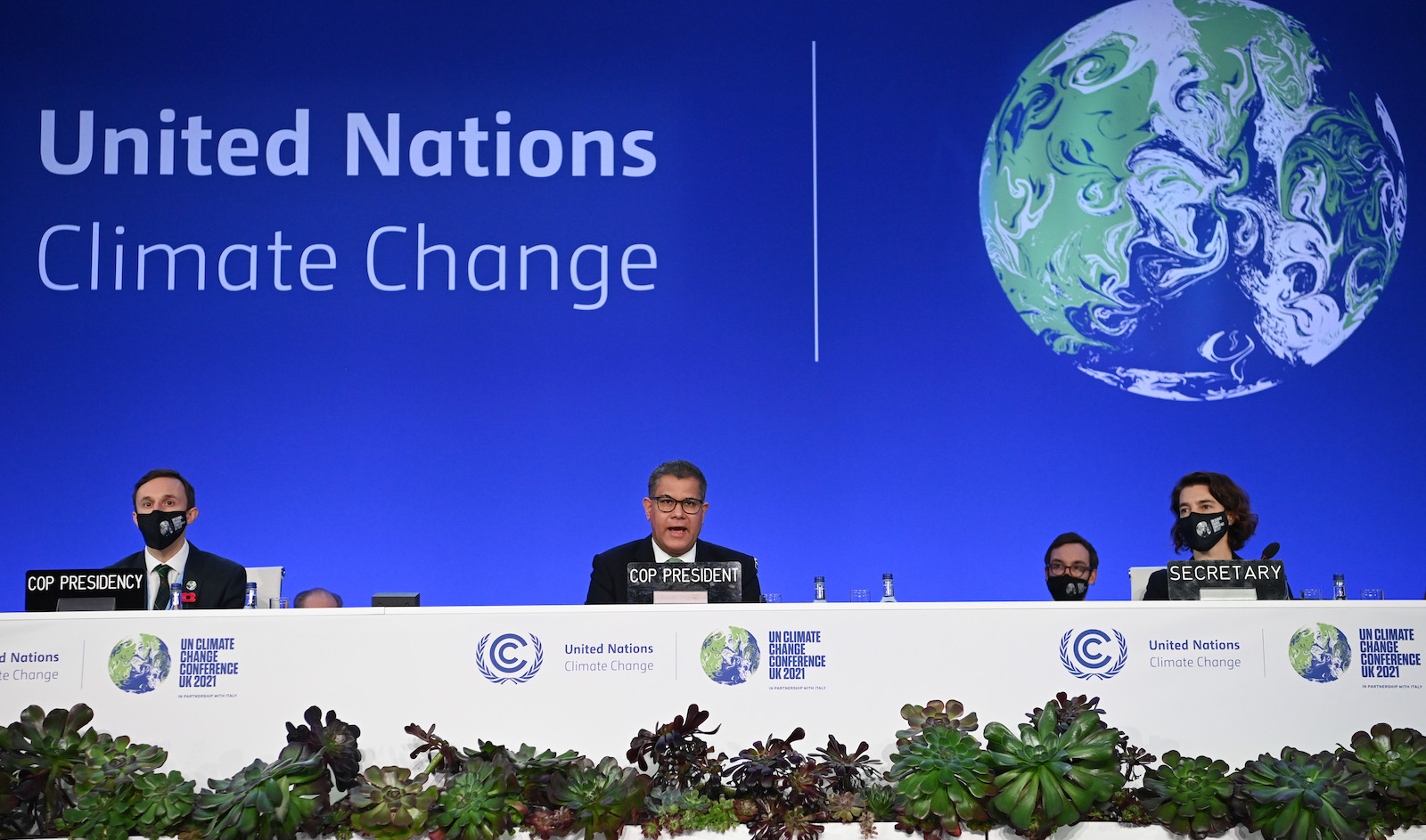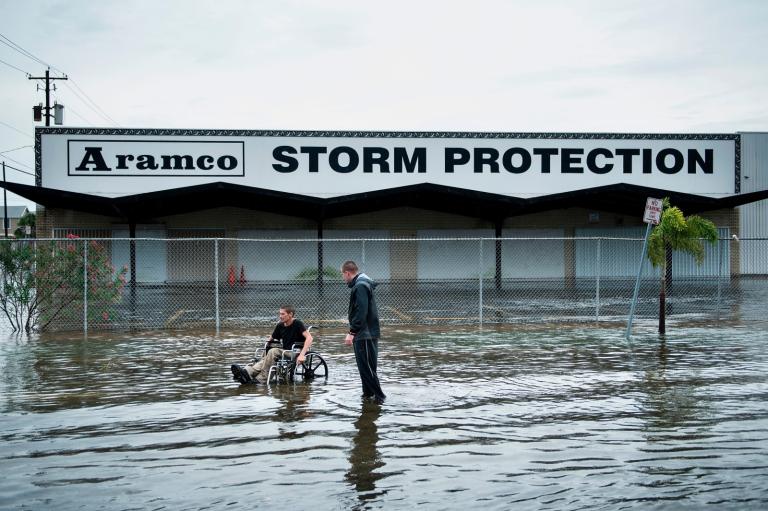After two weeks of discussion, infighting, and occasional tears, negotiators at the 2021 United Nations Climate Change Conference, or COP26, in Glasgow, Scotland, finally reached an agreement on Saturday night that preserves the hope of limiting global warming to below 2 degrees Celsius (3.6 degrees Fahrenheit).
The final 10-page agreement will not, on its own, save the planet — but it represents the most dramatic step forward for international climate progress since the Paris Agreement in 2015. Negotiators, representing most of the world’s countries, agreed to revisit and strengthen their national pledges to cut carbon emissions by the end of 2022, three years earlier than originally planned; they also completed the long-awaited “Paris rulebook” which will determine how countries submit and report their climate progress going forward.
“Taken together, this package charts a course for the world to deliver on promises made in Paris,” said Alok Sharma, the president of COP26. “This is real progress in keeping 1.5 degrees (Celsius or 2.7 degrees Fahrenheit) within reach.”
The wins of Glasgow are significant. Many countries unveiled new pledges to cut their emissions, and for the first time since the Paris Agreement was signed, those commitments — if actually followed through on (and that’s a big “if”) — would lead to 1.8 degrees C of global warming (3.2 degrees F), a number close to the Paris Agreement’s stretch goal of 1.5 degrees. Before the conference, much weaker pledges would have led to a terrifying 2.7 degrees Celsius (4.9 degrees F) of warming.
Developed countries also agreed to increase the amount of funding flowing to poorer countries to help them deal with the worst impacts of climate change, including sea-level rise, drought, and extreme weather. A lack of funds for adaptation has been a sticking point for many developing countries, who have contributed the least to climate change but are already suffering the most from its effects. According to the final agreement text, known as the Glasgow Climate Pact, developed countries will double adaptation funding from 2019 levels by 2025.
The conference also reached a final agreement on Article 6, a technically difficult part of the Paris accord that would allow countries to effectively work together to reach one nation’s climate goals. A consensus on the article has evaded the last few U.N. climate meetings. The new rules will allow countries that have cut emissions goals more than expected to sell their extra progress to nations that are lagging behind; the rules also govern the use of carbon offsets to reach climate goals.
Many countries, however, will be leaving the conference in disappointment. Rich countries have still not followed through on their promise to provide $100 billion a year to nations that need help to both adapt to climate change and switch to cleaner energy sources. The final text of the agreement “urges” developed countries to follow through on the promise, which was supposed to be met by 2020 but will likely not be reached until 2023.
Among the biggest shortfalls of the Glasgow conference is wealthy countries’ unwillingness to agree to developing countries’ demands that the final agreement include a more direct funding stream to compensate those who have suffered from climate-driven disasters, an area known as “loss and damage.” The U.S., European Union, and the United Kingdom came together to block that effort. Only the tiny country of Scotland, which played host to the conference, promised $1.4 million as compensation to developing countries.
“The final COP26 decision is overwhelmingly compromised by countries that have contributed most greatly to the climate crisis,” Rachel Cleetus, policy director for climate and energy at the Union of Concerned Scientists, said in a statement.
The conference also made progress, but ultimately disappointed, on the topic of phasing out fossil fuels. In its final hours, India blocked language around ending the use of coal. An earlier draft of the Glasgow pact promised to “phase out” coal, the dirtiest fossil fuel; the final draft only said “phase down.” (All countries must reach consensus on the final language for the agreement; any one dissenter risks the entire pact falling apart.)
India’s move was criticized by many developing countries. “This commitment on coal had been a bright spot in this package,” said Tina Stege, the representative of the Marshall Islands. “And it hurts deeply to see that bright spot dim.”
Sharma himself was visibly upset at the last-minute change, appearing near tears as he addressed the plenary. “May I just say to all delegates, I apologize for the way this process has unfolded and I am deeply sorry,” he said.
“It’s also vital that we protect this package,” he added. Then he struck a gavel to finalize the pact.




